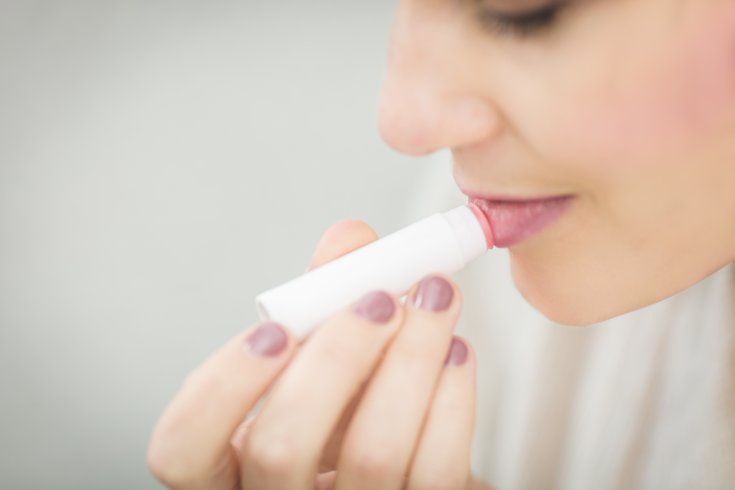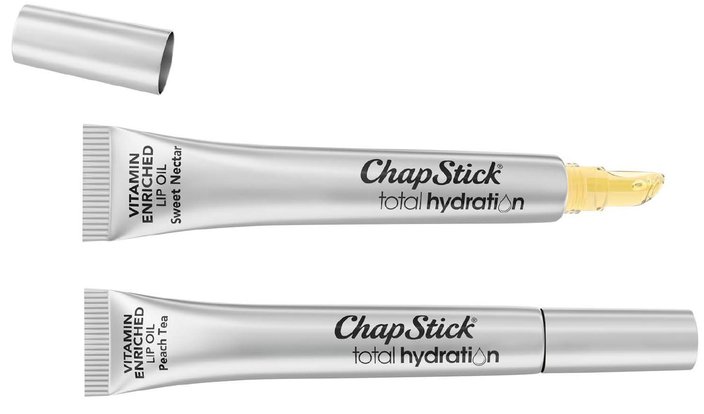
January 31, 2019
 Burst/Via Pexels.com
Burst/Via Pexels.com
Is lip balm addictive? Inquiring minds wanted to know.
As far as conspiracy theories go, this one could be dismissed as rather tame despite its potential impact on consumers each and every winter.
ChapStick, Carmex, Burt’s Bees and other lip balm products present themselves as saviors for the chapped and dry lips brought on by cold and windy weather, but could those little tubes and containers actually serve as delivery systems for a rather specific addictive behavior?
From time to time, that age-old contemplation presents a challenge to Big Lip Balm. It’s gotten to the point that Blistex has dismissed “the number of urban legends and humorous web sites devoted to lip balms” on its website’s FAQ page.
To some, though, the struggle is painfully real and worthy of exploration.
So, we presented this theory to local dermatologists, lip balm addicts, the founder of a group called Lip Balm Anonymous and others.
Their collective response? There’s something to it, but it doesn’t exactly rise to a public health emergency.
To examine the science behind balms and validity of the theories, we turned to two local experts: Dr. Nazanin Saedi, assistant professor and director of laser surgery and cosmetic dermatology at Jefferson University Hospitals, and Dr. Bruce Brod, clinical professor of dermatology in the Perelman School of Medicine at the University of Pennsylvania.
Both downplayed the potential “addictive” nature of the products, while sharing the belief that some balmers may be behaviorally inclined to use it more than necessary for a variety of reasons.
“I don’t think using it makes you use it more,” said Saedi when presented with a slippery slope sort of argument that using lip balm leads one to want to reapply it incessantly. “Some like the way it feels and that makes them use it more, to maintain that smoothness.”
For people inclined to lick their lips excessively, the balms provide moisture, but the behavior makes the balm evaporate more quickly.
“When that moisture evaporates, they keep licking and that compromises the barrier, causing more irritation, making it easier for anything to cause irritations like rashes around their lips,” she said, noting that mild topical steroids are prescribed in these situations.
More common in the field is diagnosing patients with angular cheilitis, which can lead to cracked lips.
“That drives people nuts because it’s painful,” she said of a condition that can be caused by saliva building up in the corner of your mouth.
More generally, she noted that “the balm industry has gone crazy,” offering so many different varieties and flavors that “people have to be careful, especially if they have sensitive skin to begin with.”
“When people ask me for the best moisturizers, I tell them Vaseline jelly. It’s the most pure. It doesn’t have a zillion ingredients that could irritate your skin. It’s a barrier that protects you against the cold air while trapping the moisture in,” Saedi said. “With the flavored ones, you run the risk of getting irritated. Cherry flavor is an additive. It’s not helping your lips.”
Her advice?
“There’s no ‘Elbow Stick.’ So, the question becomes what’s going on there with the lips that’s different?” – Dr. Bruce Brod, clinical professor of dermatology at Penn
“In the winter months, it’s really important to moisturize,” she said. “Don’t forget your lips and don’t lick your lips!”
Brod agreed that lips get irritated more easily than other parts of the body, thus playing into balm re-applications.
“There’s no ‘Elbow Stick.’ You don’t see those. So, the question becomes what’s going on there with the lips that’s different?” he said. “Our skin tends to be thinner there, so it’s prone to dryness, cracking and other irritation.”
Factor in the exposure of lips to more irritants – not to mention food with high and low PH, medications that dry them out, habitual lickers and moisture accumulation during sleep hours – and it’s a recipe for stocking up on the balms.
Opposed to other areas, our lips neither maintain the integrity of oil glands nor produce as much moisture, which allows skin to function normally.
“They’re also an area of great cosmetic importance, the centerpiece of the face with an association with youth and beauty,” said Brod, who also recommended Vaseline. “When they’re dry and wrinkled, it sends a message of ‘less beauty.’ They’re very important little structures. That’s why think there’s a tendency for people to use cosmetics on lips.”
He noted that some products have ingredients that cause allergic reactions or irritation, which could prompt the user to apply more and more without realizing the cause.
“Licking your lips is a tough habit to break. There are a lot of behavior-modification strategies, but self-awareness is an important first step to combating it,” he said. “Avoiding irritants is really important, as is being more careful about eating acidic foods.”
That’s all well and good, but the fact remains that Lip Balm Anonymous exists and – per its members and founder – for good reason.
The group describes itself as “a fellowship of men and women who share their experience, strength, and hope with each other so that they may solve their common problem and help others to recover from their addiction.”
The only requirement for membership? “A desire to stop using lip balm.”
Kevin Crossman founded the group some 20 years ago “under the guise of a support group” with tongue somewhat in cheek.
“There are definitely cases where people were hooked on this stuff." – Kevin Crossman, founder, Lip Balm Anonymous
That tone can be seen on the FAQ section of its website where it addresses people who think “this is a joke, right?” as well as those who mistakenly think they’re belittling other addictions while noting that people writing them off as “humor or parody” unintentionally help them spread their message.
“We’ve never said drug addiction isn’t worse than balm addiction. But we’re no less harmful than caffeine addiction!” it reads. “And don’t be so sure about not needing detox. When you stop using lip balm, the withdrawal effects are very similar to other addictive substances.”
Crossman, who spoke to PhillyVoice from California last week, noted that this is “a very serious problem in the world and in America, but obviously not the world’s most serious problem.”
He challenged Big Lip Balm to back up assertions that their products aren’t habit-forming.
“There is enough anecdotal evidence that people are using it habitually,” he said. “With medicated lip balms like Carmex, if you look at the packaging, it says it’s for cold sores. It has drying agents in it, and if your lips are dry, you want more and more of it.”
 Courtesy/ChapStick
Courtesy/ChapStickTis the season to use -- and overuse -- lip balms and associated products.
Over the past two decades, he said the group hasn’t faced any lawsuits because of their message.
“Lip balm companies like to have this tongue-in-cheek response to the problem to drive sales,” said Crossman, noting that the group doesn’t have meetings. “There are definitely cases where people were hooked on this stuff. They have lip balms everywhere, five places in their house, at work, in the car. At some point, it’s not a healthy obsession to have that much lip balm around.
“If you look for the published studies on this, you’ll see there really aren’t any. So, what do the ChapStick people have in their vaults to hide from us?”
This week, both ChapStick and Carmex were kind enough to entertain the very important questions arising from this investigation. As would be expected, both manufacturers said their products do not leave customers in the throes of lip balm addiction.
First up was ChapStick, which offered this statement:
"While ChapStick has many loyal fans who use our products regularly, ChapStick products do not contain any addictive ingredients."
Rather, its "large portfolio of products (are) designed to meet different wants and needs of consumers and deliver year-round skincare for lips." They accomplish this goal by providing a barrier that prevents moisture loss and, thus, protects lips from dryness.
Carmex (which countered Crossman's cold-sore label claims) spoke to its history, specifically that of its Classic Lip Balm, which is "made with only the purest, high-grade ingredients, remaining faithful to Alfred Woelbing’s original 1937 formula."
As for the addiction theory, Carmex also issued a denial: "We’re happy to report that Carmex lip balms are not addictive, but we can understand why our fans always have their Carmex close by."
So, what's the takeaway from all this? No, you aren't addicted addicted to lip balm, but you could be inclined to overuse it because of a lip-licking habit that's tough to break. Also, the experts say that Vaseline jelly is the most effective remedy for chapped lips.
Follow Brian & PhillyVoice on Twitter: @brianphickey | @thePhillyVoice
Like us on Facebook: PhillyVoice
Add Brian's RSS feed to your feed reader
Have a news tip? Let us know.